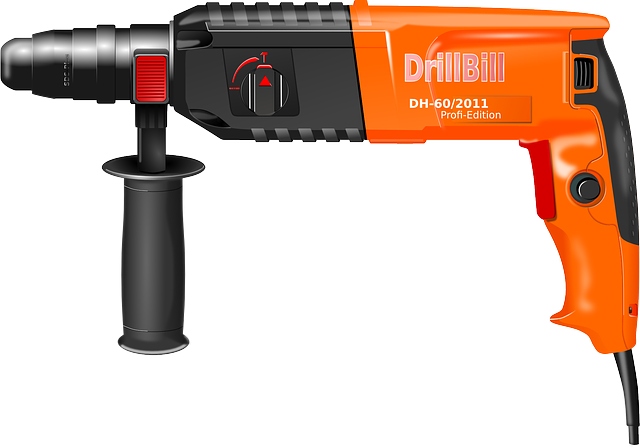Top & Best Dishwasher Review 2022 – How to Select Ultimate Buyer’s Guide
Dishwasher: Everything you need to know about the best of 2022
In this article we are going to talk about what is the dream of consumption of a large portion of the population today: the dishwasher.
With less and less time to dedicate to domestic activities, the seeks practicality and ease in carrying out daily tasks. Exactly what a dishwasher promises.
Despite being considered expensive by many, data indicate that the use of the washing machine generates savings. A dishwasher saves up to 85% water compared to washing by the conventional method.
In this article we will introduce you to the best dishwasher options available on the market, in addition to the features and functions that you must pay attention to in order to make the choice that best meets the needs of your home.
First, the most important
- Increasingly popular, the dishwasher is available in several configurations. To choose the ideal, first identify your family’s usage profile and the space available for installing the machine.
- Capacity, size, design, form of installation, extra features and water and energy consumption are some characteristics to be considered when purchasing.
- Prices vary according to the brand, model and capacity of the dishwasher, but it is possible to find compact versions starting at R $ 1,500.
You may also like:
- Kitchen faucet: What’s the best of 2022?
- Knife set: Which are the best of 2022?
- Panela Tramontina: How to choose the best one for you in 2022
Best dishwashers: Our recommendations
To choose a dishwasher you have to consider factors that go beyond price. We list the best in the market. After checking the ranking, continue reading this Guide until the end to learn how to choose the perfect dishwasher for your family.
- Electrolux LV10X dishwasher
- Electrolux dishwasher 8 LE08S Services
- Brastemp dishwasher 14 services BLF14AR
Buying Guide
Although not so popular, interest in dishwashers is growing. Despite having a higher price, the benefits and savings in the long run end up paying off the investment.
If you want to have a dishwasher at home, but don’t know where to start, continue with us. We have lots of information for you!
Is it worth having a dishwasher?
It is practically a consensus among dishwasher owners that it, when of quality and adequate to the needs of the house, works miracles in the routine. In addition to practicality and time savings, the dishwasher is also associated with reducing water consumption.
According to data from Sabesp, washing the dishes in the sink – with the tap half open – for 15 minutes consumes, on average, 117 liters of water.
The number can rise to 243 liters in apartments, where water pressure is usually strongest. Dishwasher machines have an average consumption of 10 liters per complete cycle, which washes 60 to 150 items, depending on the model and capacity.
High energy consumption is a very common myth linked to dishwashers, but it is no longer a reality. The current models have mechanisms that guarantee very satisfactory savings rates.
The ideal machine is one that can handle the amount of dirty dishes produced daily by the family. Buying a dishwasher with a capacity above or below the actual need can be a big problem, since turning it on partially empty means wasting water and electricity.
On the other hand, putting it to work filled with crockery in excess of the indicated quantity can affect the performance of the washing machine and the quality of the washing.
When used correctly and with the right products, most washers are capable of even heavy cleaning of pots and utensils. Some even use heat for washing and drying, eliminating germs and bacteria from dishes and utensils.
Although more expensive, cleaning products for dishwashers require less quantity and yield a lot. A kilo of washing powder costs about R $ 15, yielding an average of 50 washes. The 100 ml drying liquid costs about R $ 10, and is sufficient for up to 300 washes.
However, it may be difficult to find these products in some regions of the country. Check out some advantages and disadvantages of the dishwasher:
What to pay attention to when installing a dishwasher?
Installation forms may vary according to the brand, model and place where the dishwasher will be. Make sure that the machine is installed in the best location: as close as possible to road points and water depletion.
Check before purchase which material is required for installation, and if it comes with the product. In case of installation in small or peculiar places, some adapters may be necessary. Search ahead to find out if accessories are available in your region.
Some models have videos and online tutorials for installation, which can help with the service. If you find the steps difficult to perform, or are not very adept at the task, consider hiring a professional technician for the installation.
Which soap should I use in a dishwasher?
Basically the dishwasher uses two products: soap and rinse aid drying liquid. The soap can be found in liquid, powder or small bars.
The use of rinse aid is important so that the dishes are not stained during drying.
Although more expensive, the products yield a lot. Make sure that specific products for use in the dishwasher are available in your region.
Each dishwasher has specific compartments for supplying soap and drying liquid. Make sure to fill up correctly and with the indicated amount to avoid waste.
How much?
The price of a dishwasher fluctuates according to the model, brand, capacity and features of the product. It is possible to find compact models from R $ 1,500.
More sophisticated models, with several functionalities or imported brands, may have much higher prices.
After choosing the desired model, use price comparison sites to choose the best offer. Many online stores offer the same product at different prices.
Where to buy?
Dishwashers can be purchased at physical stores that offer appliances, It is also possible to purchase online, taking advantage of all the convenience that online selling sites such as Amazon.
Purchasing criteria: Factors to compare dishwasher models
Although you have already understood all the advantages of the dishwasher, there are fundamental criteria for you to make the best choice for your home. Are they:
- Capacity
- Model
- Water and energy consumption
- Functionalities
- Technical assistance
Below, we will check each one in detail.
Capacity
It is essential to evaluate the amount of dirty dishes produced daily in the place where the dishwasher will be used. This is the most important factor in choosing the model to be purchased.
This is because, in order to take full advantage of the machine’s performance, avoiding waste of water and energy, the ideal is that the dishwasher always works with 100% of its capacity filled.
It is also worth remembering that the machine may have its performance and the quality of the washings impaired when operating with a quantity of crockery above capacity.
A tip for when you have little dirty dishes, is to accumulate the containers of two or more meals before starting the washing.
If this practice is necessary in your home, prefer models with programs that launch water jets or perform a light rinse on the stored dishes. This avoids a bad smell, and the residues are dried out while waiting for washing.
Model
The choice of the model should not only be aesthetic, but also consider the space in which the device will be installed. Basically there are 3 types of dishwasher: the floor, inlaid and table.
- Floor : Can be installed directly on the floor.
- Built-in : They are dishwashers that fit into the carpentry of the environment.
- Table : Can be placed on benches, tables or other surfaces.
Properly evaluating the space available for the installation is essential to get the purchase right.
Generally, the same models come in white, silver or stainless options. These characteristics are only aesthetic. The most common is to match the color with the other household appliances in the room. White machines tend to have lower prices than silver / stainless steel.
Water and energy consumption
High energy consumption, as we have already mentioned, is a myth connected with dishwashers. The newer models have evolved, with very satisfactory savings rates.
Even so, it is worth checking the average consumption of the model chosen before purchase. Make sure to use the official data, which are on Inmetro’s energy efficiency seal.
Based on the average weekly usage, calculate the final impact that the use of the dishwasher will have on your energy bill.
The highest consumption occurs at the time of drying and in case of using hot water for washing. To save money, use cycles without heated water and skip the drying step, allowing the dishes to dry naturally.
Check out the tips from the Organize Without Freshness channel! in the video below:
Also check the water consumption of the chosen model. Some have economical washing mode. Others, like washing machines, make it possible to reuse water after washing, making the savings even greater.
It is worth remembering that the reuse of water requires a special installation. If you want to use this functionality, make sure the model offers this possibility and that the installation is done according to the purpose.
Functionalities
Define the features that are important to your routine. In houses with children, for example, it is interesting that the models have the option of sterilizing the dishes and have safety locks to prevent accidents with the little ones.
But remember that extra features can make the product more expensive. Compare the options, and prioritize those functions that you think are fundamental and that you are sure you will use frequently.
Technical assistance
As it is a durable good, the dishwasher may need maintenance or repairs at some point.
To avoid future headaches, a thorough search before purchase is important. Make sure that the chosen brand offers authorized technical assistance in your region or in locations that you have easy access to.
Search online sales sites, or even on the brand’s own page for consumers’ opinions regarding the model you have chosen. Assess issues such as: incidence of defects, routine maintenance and overhauls, availability of spare parts, value of repairs and spare parts.






